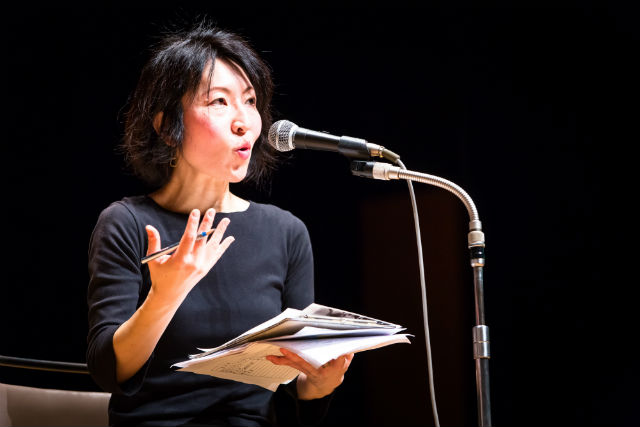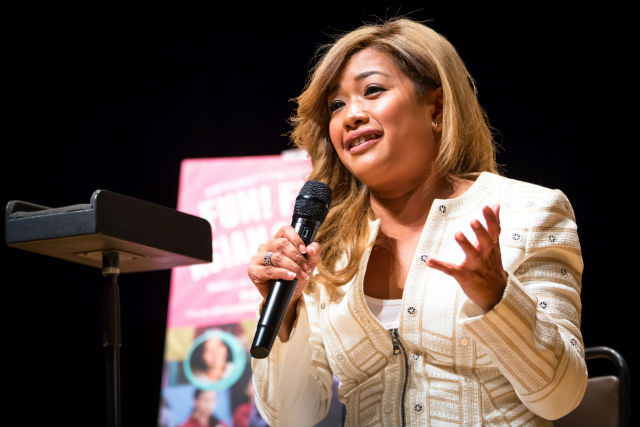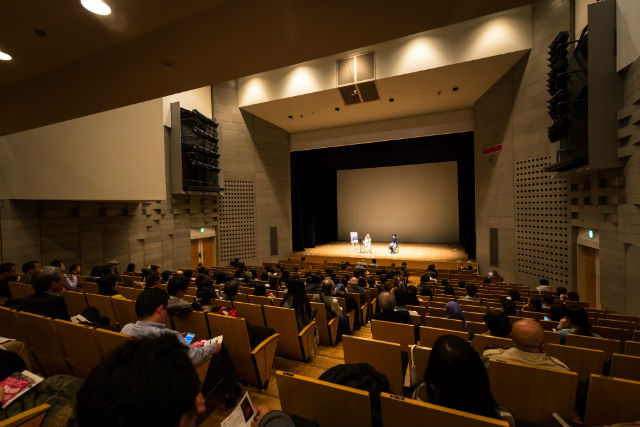Local Newcomers as the Two Protagonists
Matsushita: I noticed people from different countries got together in this film: the scriptwriter is Indonesian, and there are also popular actors from Indonesia and Malaysia who played a part in the film. But the two actors who played Yasmine and Nadia were from Brunei and were completely new to film; am I right?

Kamaluddin: Yes, it was their very first time to be on screen. They'd never done any acting for TV or commercials, so it was literally their first time. As I said, filmmaking in Brunei means you have to work from zero; we don't have film schools, acting schools, or coaches. So there was no choice but to teach them myself. I am not a teacher of acting; but I just focused on working on the characters. They were a natural at it though; very talented and they made themselves emotionally available which is really important. So when we were training, we spent every day together. A couple of hours during the day and night were allocated for silat training, because obviously they had no experience in silat either. So, I think we spent a year on training, and I think their achievement really shows in the film.
The Lifestyles of Bruneian High School Students
Audience 4: I am curious about the lifestyles of Bruneian high school students. In the film, there was a Quran home tutor, but is it common to have extracurricular lessons like that at home? Also, some of the girls in the film were wearing the headscarf and others weren't, so could you tell us how mandatory or optional the headscarf is? Do high school girls have the freedom to not wear the tudung and dye or do their hair?

Kamaluddin: It is a good question. I think there is a lot of misconception about Brunei, and it is interesting. To answer your first question about tutors: yes, it is quite common for people to have an ustaz [teacher of Islamic religion] to come to your home to teach the Quran. I had one when I was young as well. And, your second question about the headscarf—in Brunei we call them tudung. Some girls wear it and others don't. But because we are an Islamic country, if we were to go to a government school, we'd have to wear the tudung as part of the uniform, and this would apply whether you are Muslim or not. You can be Catholic or atheist; you would still have to wear it. But after school, it is up to you and you can take it off if you want. I went to a government school for primary school, so I wore the tudung, but after school I didn't wear it. And, yes, it is okay to have any hairstyle you want.
In fact, Brunei is full of independent women. When I get stuck in rush hour and I look around at the cars, I see all these women; they are all driving and heading to work. It is a really incredible country and I have never experienced any kind of gender bias or discrimination there.
Matsushita: I remember, Nadia in the film wore her tudung outside of school and even wore it while training too. Yasmine, on the other hand, didn't wear it at all. So there really were many aspects of Bruneian life that was depicted in the film.

- Next Page
- Freedom of Expression in Brunei






